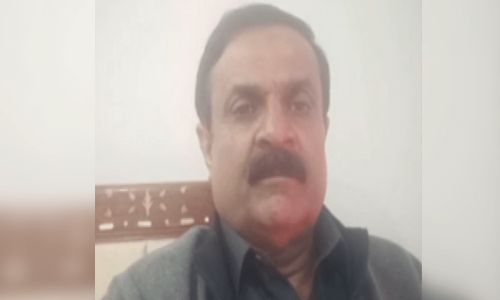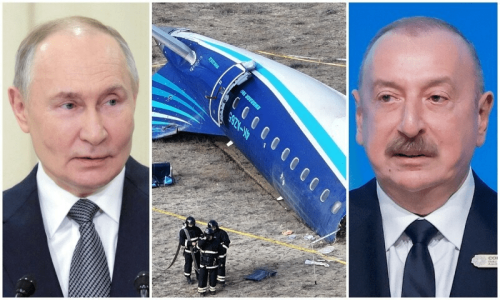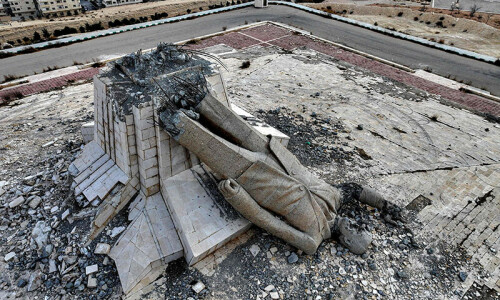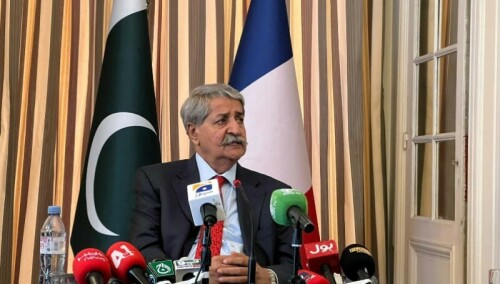ISLAMABAD: The leadership of the ruling Pakistan Tehreek-i-Insaf (PTI) on Saturday failed to reach consensus on the issue of a new local government system to be introduced in the party-ruled provinces of Punjab and Khyber Pakhtunkhwa (KP), forcing Prime Minister Imran Khan to extend for another week the deadline given to a special task force for preparation of recommendations.
Members of the task force on the local government system at the meeting, which was presided over by Prime Minister Imran Khan at his Banigala residence, remained divided over the size of proposed LG units and mode of elections, sources told Dawn.
They said a proposal for holding local government elections on a non-party basis also came under discussion at the meeting, which was attended by members of the provincial cabinets of the two provinces besides senior party leaders including secretary general Jahangir Tareen.
PM Imran gives another week to task force as deadline passes
Earlier while presiding over a task force meeting on Sept 11, the prime minister had directed it to finalise its recommendations regarding changes to the existing local government system within next 48 hours.
Four days later when the committee met again, the prime minister was presented with different proposals regarding changes to the LG system based on village councils and union councils. The sources said some members were of the opinion that the new LG system should comprise village councils with a population size of 2,000 to 6,000, whereas others suggested the system be based on union councils in areas with a total population size of 20,000 to 25,000 people.
Those backing the UC-based system at the meeting argued that the administrative cost of the village council-based LG system would be very high. Therefore, they said, it would not work in Punjab. They also suggested changes to the KP system due to the high cost involved in running it.
A senior PTI member told Dawn that the existing cost of running a union council in Punjab was around Rs12 billion and if the system was converted to the village council level, its cost could reach nearly Rs50 billion, a four-time higher than the existing one. He said the village council-based system was somehow feasible in the less-populated KP, but it might not work in Punjab whose population was nearly 110 million.
The sources said a proposal to hold the elections at UC or village council levels on a non-party basis was also thoroughly discussed at the meeting, but no decision could be made as participants could not arrive at any conclusion. The participants were of the opinion that the elections of the councillors should be held on a non-party basis to avoid division within the community. However, they said elections of the tehsil or district mayor should be held directly and on a party basis.
When contacted, Federal Information Minister Fawad Chaudhry confirmed that the task force members in Saturday’s meeting were unable to reach a consensus. He said the prime minister gave another week to the task force members to come up with final recommendations.
An official handout later issued by the Prime Minister Office quoted Mr Khan as telling the participants in the meeting that the PTI believed in transfer of power to the masses at the grass-roots level in the real sense. According to the handout, the prime minister said the people could make their own decisions only through an effective and strong local government system. He said the PTI government wanted to make the local governments more effective and functional in the light of the experience of its previous government in KP.
During a meeting of the federal cabinet last month, the prime minister had constituted six task forces to suggest steps to implement the government’s 100-day plan of ‘change’ and introduce reforms in different sectors including civil services and the local government system. The prime minister had also constituted a task force to suggest measures for the implementation of the planned merger of the Federally Administered Tribal Areas (Fata) with Khyber Pakhtunkhwa.
The PTI had announced during its election campaign and after assuming power that it planned to introduce a KP-like local government system throughout the country for better service delivery. However, the Pakistan Muslim League-Nawaz and other opposition parties decided to resist the move.
Published in Dawn, September 16th, 2018














































